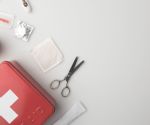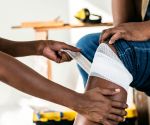First aid kits should be put in a spot that is easy to find in an emergency, but still out of reach of young children. In addition, you should have more than one first aid kit - one for the home and one for each vehicle you own. You may consider a small travel-size first aid kit for trips to the park or pool, or creating a special first aid kit for traveling. For example, if you're going camping, you might put extra sunscreen, burn ointment, bug repellent, and bite lotion in the kit.
Continue Learning about First Aid, Safety & Preparedness
Important: This content reflects information from various individuals and organizations and may offer alternative or opposing points of view. It should not be used for medical advice, diagnosis or treatment. As always, you should consult with your healthcare provider about your specific health needs.






